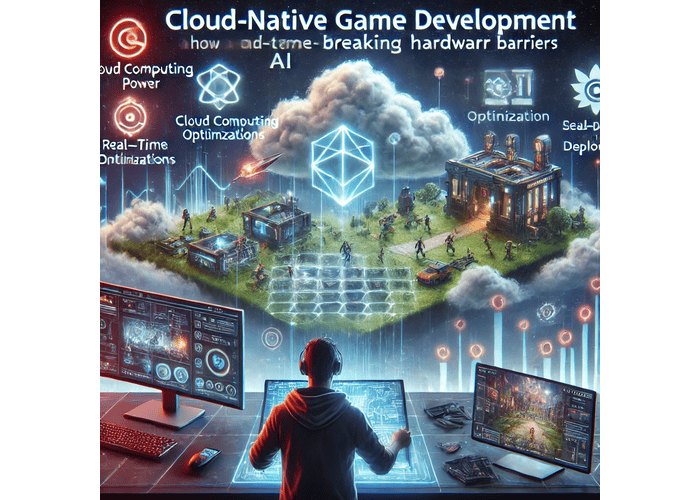The gaming industry continues to push technological boundaries, with cloud computing removing traditional hardware limitations. Players now access advanced games through various devices, including 1xbet mobile applications, where both gaming and betting experiences benefit from server-side computing power.
This technological shift represents one of the most significant advances in interactive entertainment since the introduction of online multiplayer gaming, creating new possibilities for developers and users alike.
Cloud infrastructure and modern game design
Cloud-native game development represents a fundamental shift in how games are built and experienced. Server-side rendering technology explains how processing-intensive tasks now happen on remote servers rather than local devices.
This architecture allows developers to create visually stunning games without worrying about end-user hardware specifications.
The benefits of cloud-native development include:
- Consistent gaming experience across different devices
- Reduced load times through background asset streaming
- Real-time updates without lengthy downloads
- Higher visual fidelity regardless of local hardware
- Expanded multiplayer capabilities with minimal latency
- Advanced physics simulations using distributed computing
- Greater creative freedom for development teams
Data processing and live service applications
The same cloud infrastructure benefits both gaming and online betting platforms. Real-time data analysis shows how both industries use similar back-end systems. Sports betting platforms process millions of simultaneous data points during major events, constantly recalculating odds based on live action.
Research indicates that cloud-native applications can handle 500% more concurrent users than traditional server configurations. This capability proves critical during peak usage periods, such as major sporting events when millions of users might place bets simultaneously.
Future directions in cloud-powered interactive media
The integration of cloud computing across interactive entertainment continues to accelerate. Gaming studios now build entire development pipelines around cloud capabilities, designing experiences impossible on standalone hardware.
Statistics show that cloud-based game streaming services grew by 40% in 2023 alone. This growth mirrors increases in mobile betting platforms, where users expect instant access and responsive interfaces regardless of their device specifications.
Technical advances in edge computing further reduce latency issues, with gaming response times approaching those of local hardware. These improvements benefit both game players and betting enthusiasts who require immediate responses when placing time-sensitive wagers.
Artificial intelligence integration with cloud gaming opens new possibilities for procedurally generated content and dynamic difficulty adjustment. These technologies create more personalized experiences tailored to individual players’ skills and preferences.
The economic model has shifted alongside these technical changes. Studios now focus on creating games as ongoing services rather than one-time purchases, much like how betting platforms maintain continuous engagement through regularly updated odds and promotions.
For consumers, these changes mean greater access to premium gaming experiences without expensive hardware investments. This accessibility parallels the convenience of mobile betting platforms, where sophisticated features work seamlessly on standard smartphones.
Cloud gaming subscriptions now account for approximately 15% of the gaming market, with projections suggesting this could reach 30% by 2027. As bandwidth limitations decrease with 5G technology adoption, cloud-native applications will become increasingly prevalent across all forms of interactive entertainment.
Security improvements represent another significant benefit of cloud architecture. Centralized systems allow developers to implement advanced protection measures without burdening user devices with resource-intensive security protocols. This centralization creates more secure environments for both gaming and financial transactions.
The environmental impact of cloud gaming also warrants consideration. By shifting processing demands to optimized data centers, cloud gaming potentially reduces the overall carbon footprint compared to millions of high-performance gaming devices running simultaneously around the world.




